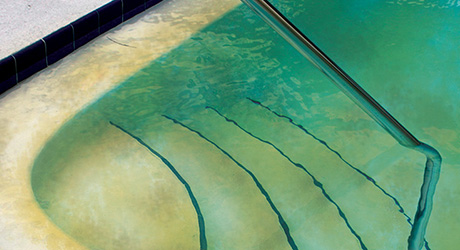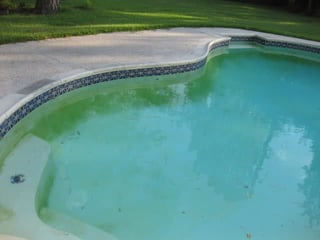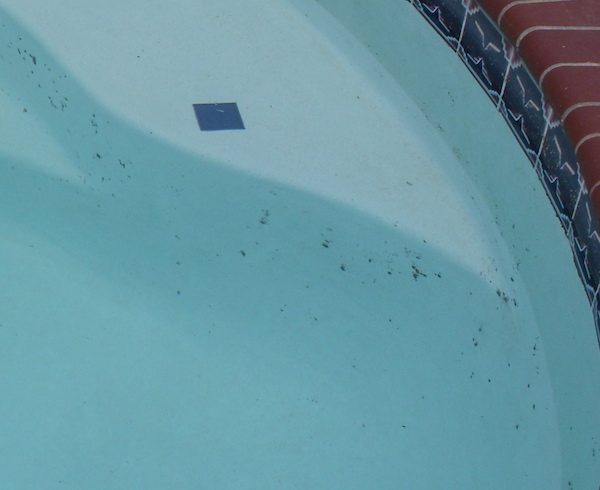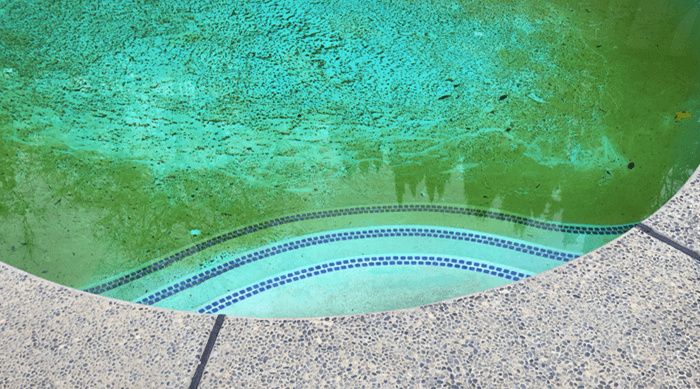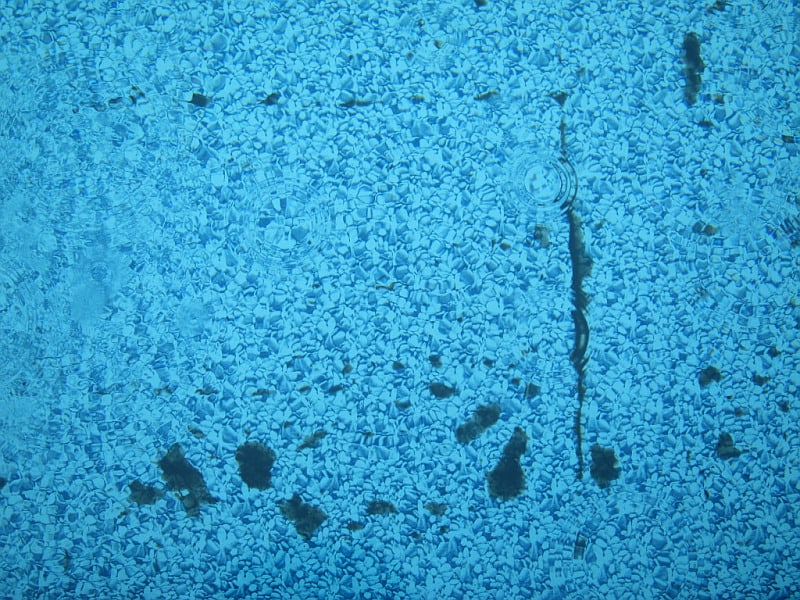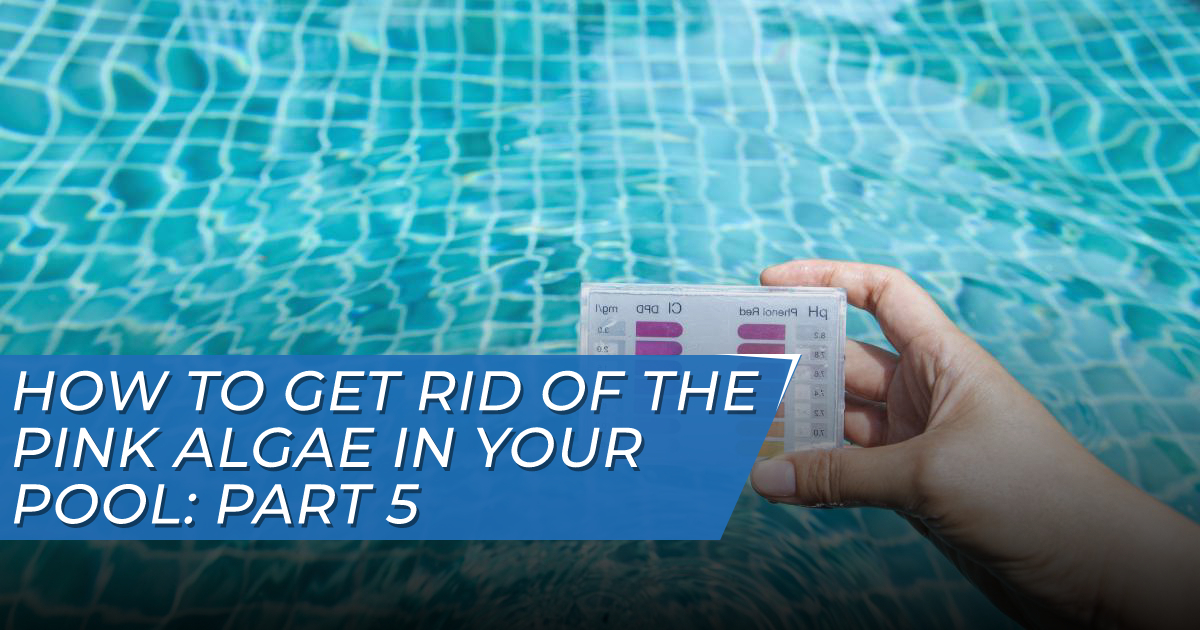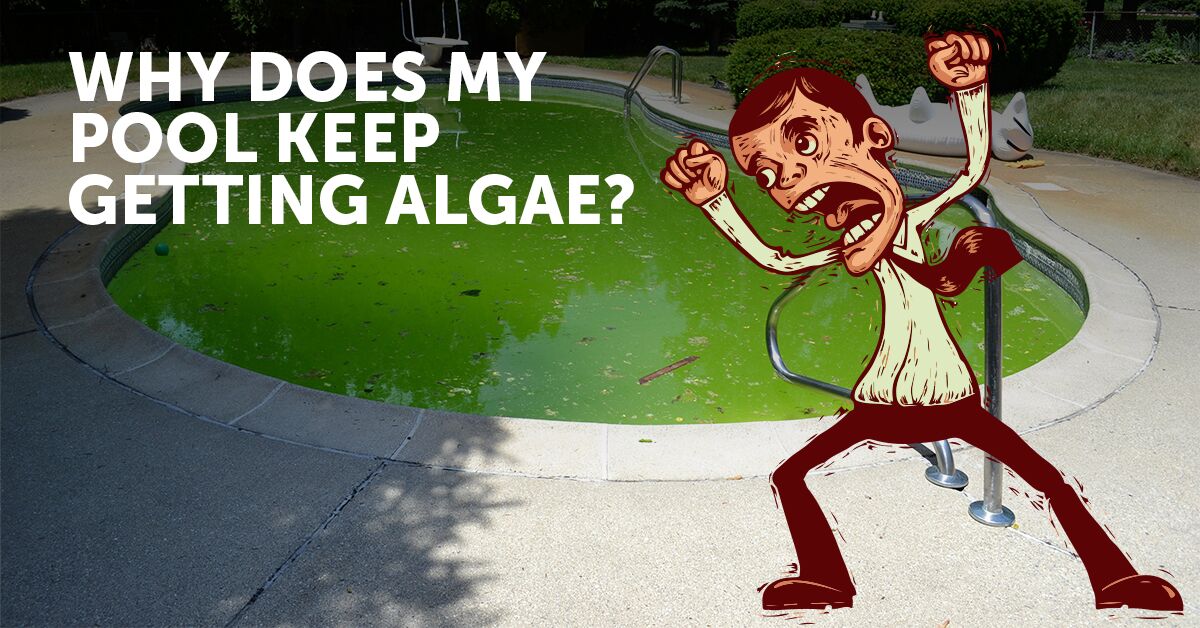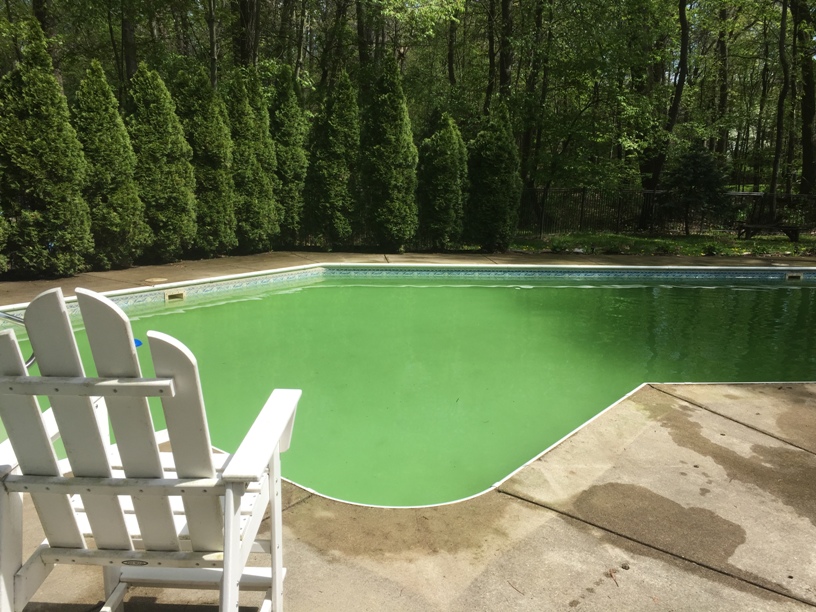Algae Keeps Growing In My Pool

Algae spores may get into the pool through rain wind or contaminated equipment and swimsuits.
Algae keeps growing in my pool. Algae is a one celled plant that can grow in your pool if conditions are favorable and it s a major concern for swimming pool owners. Why does my pool keep getting algae. The faster you catch a problem the easier it will be to deal with it. Always test at least twice a week during the swimming season.
As previously stated algae can gain a foothold in your pool when your pool care regime is disrupted. That is they take in carbon dioxide and release oxygen as a byproduct. So if you re fighting algae right now don t be too hard on yourself. How to troubleshoot your pool pump.
Most types of algae won t grow in the dark which is why you usually find algae growing on the sunny side of the pool. When the swimming pool conditions are not well balanced an algae bloom can occur overnight. Algae likes to grow in stagnant water so you need to make sure your swimming pool s water is always circulating. They also need plenty of sunlight to carry out photosynthesis.
Poor filtration and lack of proper sanitization boost green algae growth. Slimy green algae also attaches itself to your pool walls and floor. Test the pool regularly for free chlorine levels ph alkalines and cyanuric acid. Clogged or under performing pumps will create an optimum environment for algae to get comfortable.
Chemical imbalance almost entices the algae to take root in your pool. The most common and easiest algae problem to kill is chlorophyta which gets its color from chlorophyll. Although this is definitely a major cause of algae it is not the single contributing factor. Green algae floats in the water making it cloudy and giving it a greenish tinge.
It is important that when you treat for algae you submerge your cleaning equipment in the. Daily testing is ideal especially in the week or two following an algal bloom. Algae can occur because of many reasons including. Some forms of algae actually can ingest calcium which they can find in the water or in the walls of a plastered pool.
Maintain your pool water. An excellent example of this is yellow commonly called mustard algae. Algae should not grow if you keep on top of your pool chemistry. In short if you own a pool it s inevitable that you will see algae at some point.
Some of the many types of algae can exist outside the pool and will re infest the water when brought back in contact with the water. Since algae have chlorophyll they use photosynthesis to flourish. To be fair algae don t just occur in unhealthy pools. Dirt debris and leaves in the pool.
If algae is left untreated algae blooms can form in your pool. At least twice a week you should check and clean your skimmers and pump strainers. The most common reason for algae growth in pools is that it has a low chlorine or its alternative in the pool. These spores can survive outside the water for extended periods of time.
